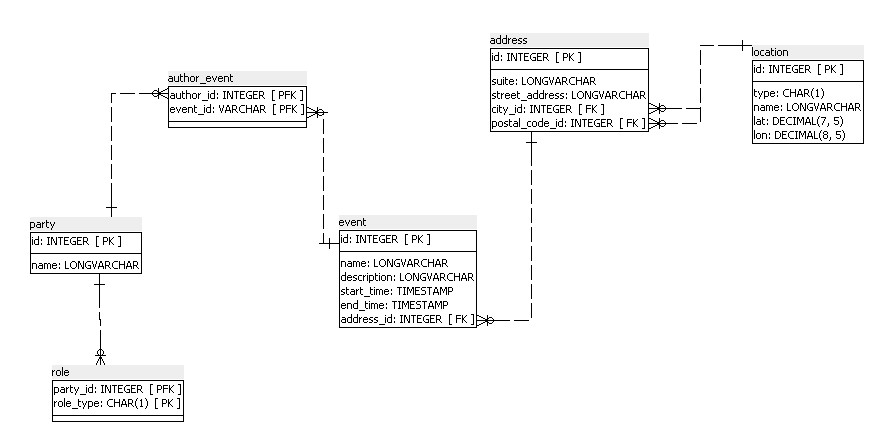I am building a simple database driven web application, but from reading so many books on the subject, I know that if my database is messed up, then my application too, will most likely be messed up.
So I thought I would check with the database design professionals, and get their help in reviewing what I have come up with before proceeding further.
The Application:
A website that will make available [ Event Information ] to the End User on a Google Map. The events in question are book signing events.
I figured, people read a lot (me one of them), and enjoy reading, and it would be nice to have a website where users can go:
- Type their post code (zip code), and get all events near them within a set mile radius.
- Type their favourite author name, and get all his/her events up on the world map.
Nice idea no? I think so anyway :)
Ok, so based on the above, I know that my event table must contain some geographical information, so I read this. And came up with something like this for my database.
- One Event Can Host Many Book Authors
- One Author Can Only attend One Event at a time.
ERD Diagram http://img24.imageshack.us/img24/6614/entityrelationshipdiagr.jpg
I realise that this is a simple database design, but my application (for now at least) has a really simple aim, and that is to display event information on a Google Map.
I would greatly appreciate any feedback, any pitfalls that I'll face in the future .. etc?
Thank You.

